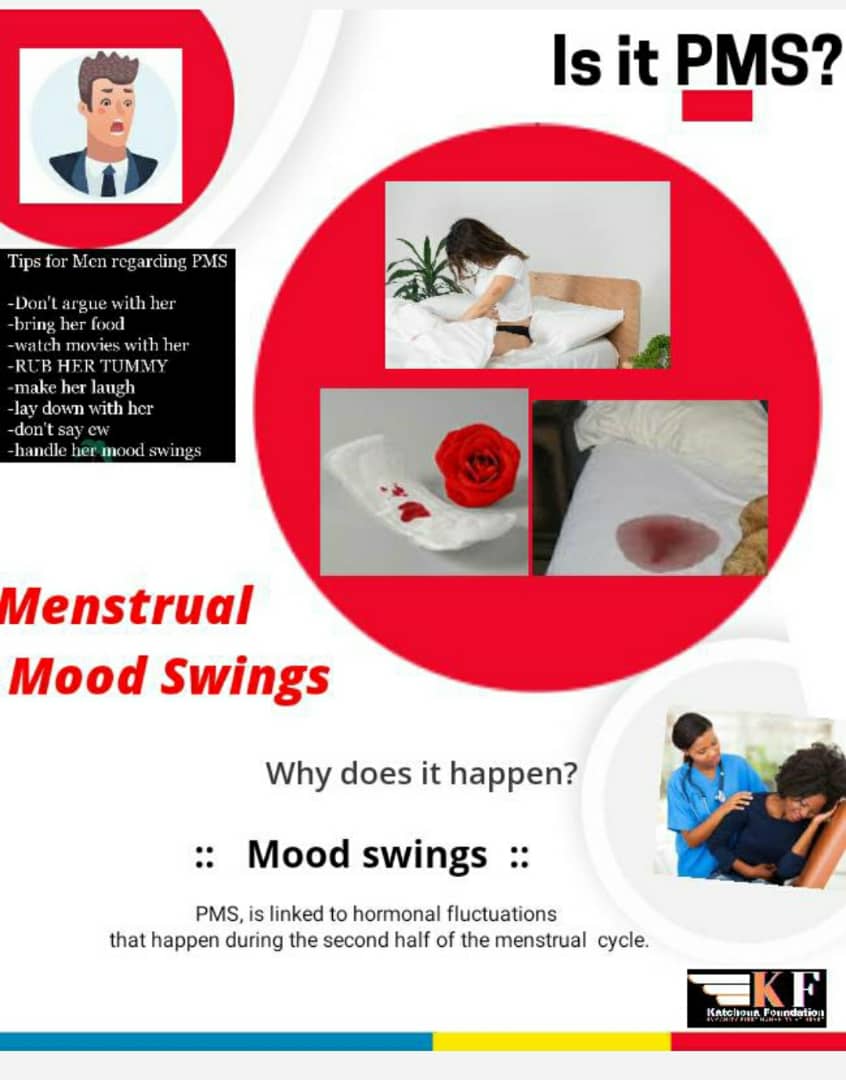Many women experience Period mood swings and other psychological symptoms before a period.
Feeling depressed before and during a menstrual period is common.
Facts About Female Hormones
You blame your bad moods on your hormones; but how much do you really know about them?
These emotional changes occur as a result of fluctuating hormone levels.
Estrogen levels begin to rise slowly just after a woman’s period ends, and they peak two weeks later. Then estrogen levels drop like a rock and begin rising slowly before dropping again just before menstruation starts.
These hormonal peaks and valleys are thought to cause mood swings and other menstrual symptoms.
Female hormones interact with brain chemicals in a way that can affect mood in those with PMS. Reduced levels of estrogen during the luteal phase of the cycle could possibly cause a drop in serotonin as well.
Menstrual-related mood disorders
PMS ( premenstrual syndrome) and PMDD( Premenstrual dysphoric disorder)are types of menstrual-related mood disorders.
- PMS
PMS causes both physical and emotional symptoms. These symptoms can begin at any stage between the end of ovulation and the beginning of the menstrual period. You will know these emotional ups and downs are due to PMS if they start consistently a week to two weeks before your period and stop a day or two after menstruation starts.
Once menstruation starts, mood swings usually disappear.
For most women, the symptoms are not severe.
2. PMDD is severe and debilitating. PMDD involves a set of physical and psychological symptoms that affect daily living and threaten the individual’s mental wellbeing. However, PMDD is also not uncommon, affecting between 3–8% of women in their reproductive years
PMDD is a chronic condition that necessitates treatment when it occurs.
Is it normal?
Mood swings and other symptoms associated with PMS are very common.
The symptoms usually develop when someone is in their 20s and may worsen over time.
Some major risk factors for PMDD include:
. Stress
a pre-existing mood or anxiety disorder
. Women with a family history of depression or who have previously experienced postpartum depression are at increased risk for PMDD
The symptoms are relatively mild. However, some women may experience severe symptoms that interfere with their personal relationships and day-to-day life.
Symptoms
Physical symptoms
- headaches
- increased or decreased appetite
- abdominal bloating
- fatigue or lethargy
- breast tenderness
- swelling of the feet or hands
- muscle aches or pains
- difficulty sleeping
Behavioral symptoms
- difficulty concentrating
- fatigue
- forgetfulness
Psychological symptoms
- mood swings
- feeling overwhelmed or out of control
- crying without knowing the reason
- sudden sadness
- sensitivity to rejection
- social withdrawal
- anxiety
- depressed mood
Anger and mood swings are a monthly bother for most women, severe PMS can be emotionally debilitating for some.
Ways to Get Rid of PMS
- Exercise; Physical activity can lift moods and improve depression. It’s believed that endorphins — feel-good brain chemicals that are released during exercise — may help counteract some of the hormone changes that may trigger severe PMS.
Exercising can also boost energy and help with cramps and bloating, which may help you feel better.
Aerobic exercise such as walking, running, bicycling, or swimming is recommended. - Avoid caffeine, alcohol, and sweets. Staying away from coffee and other caffeinated drinks for two weeks before your period may make a difference in your mood because caffeine increases anxiety, nervousness, and insomnia. Cutting down on alcohol may also be helpful because alcohol acts as a depressant.
- Avoid sugary foods, especially in the week before your period, which may help ease severe PMS symptoms by preventing mood swings associated with blood sugar fluctuations.
Home Remedies
- Dietary and lifestyle changes may help in cases of mild PMS.
- Eating small meals throughout the day rather than two or three big meals may also help ease PMS symptoms.
- PMDD is a chronic condition that necessitates treatment when it occurs.
When to see a doctor
People should talk to their doctor if the mood swings are severe, a person should talk to their doctor as soon as possible.






